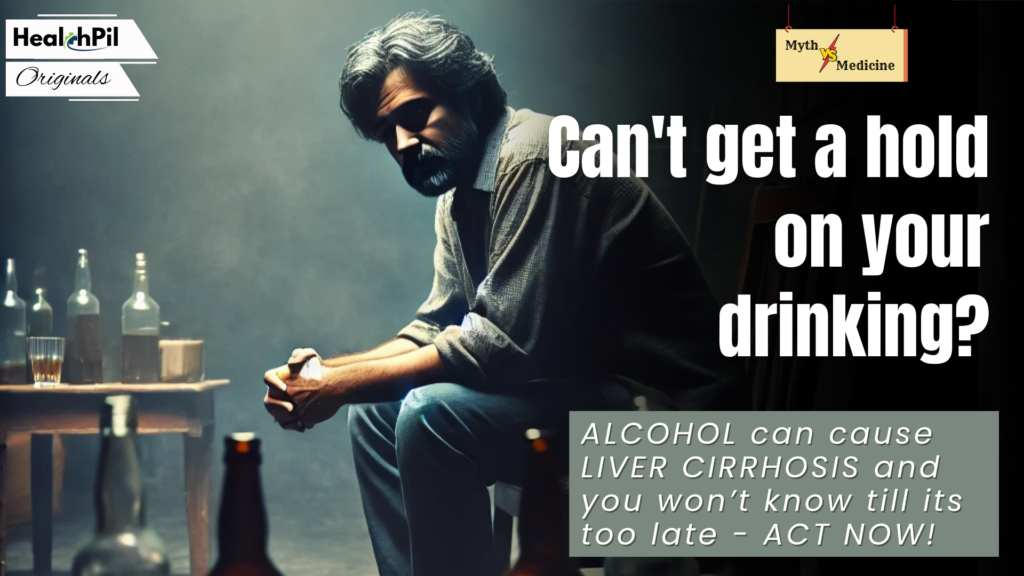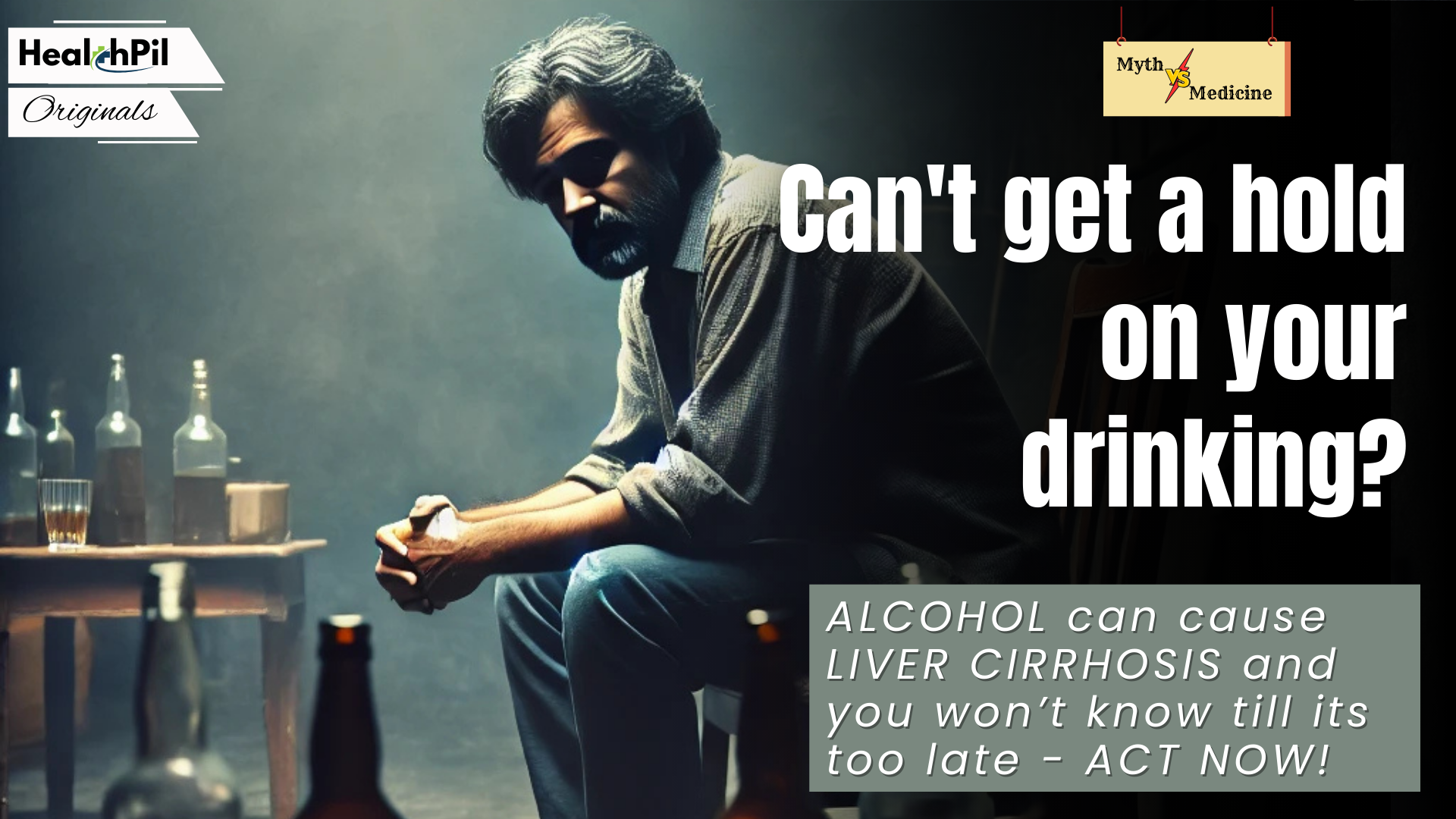
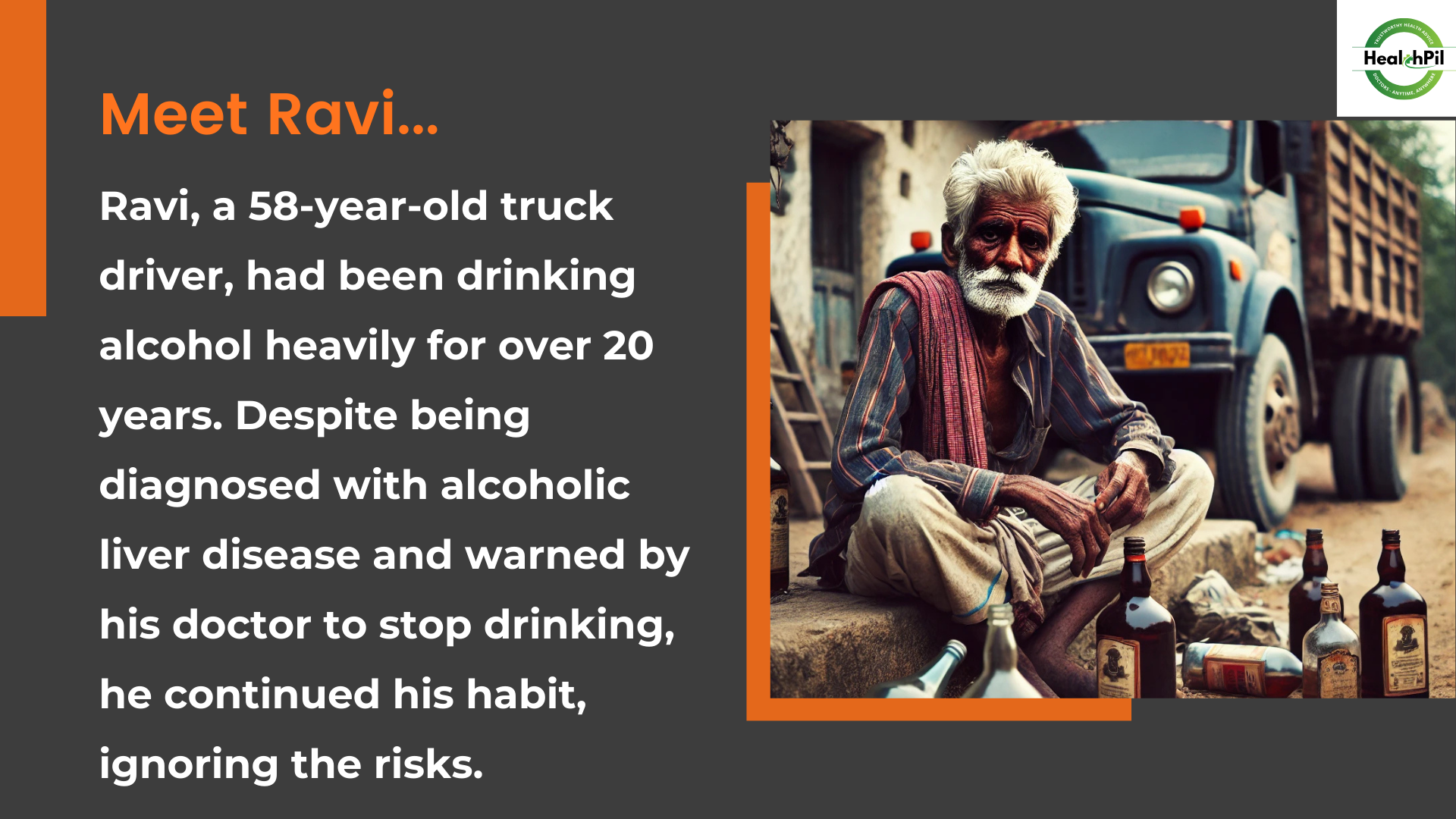
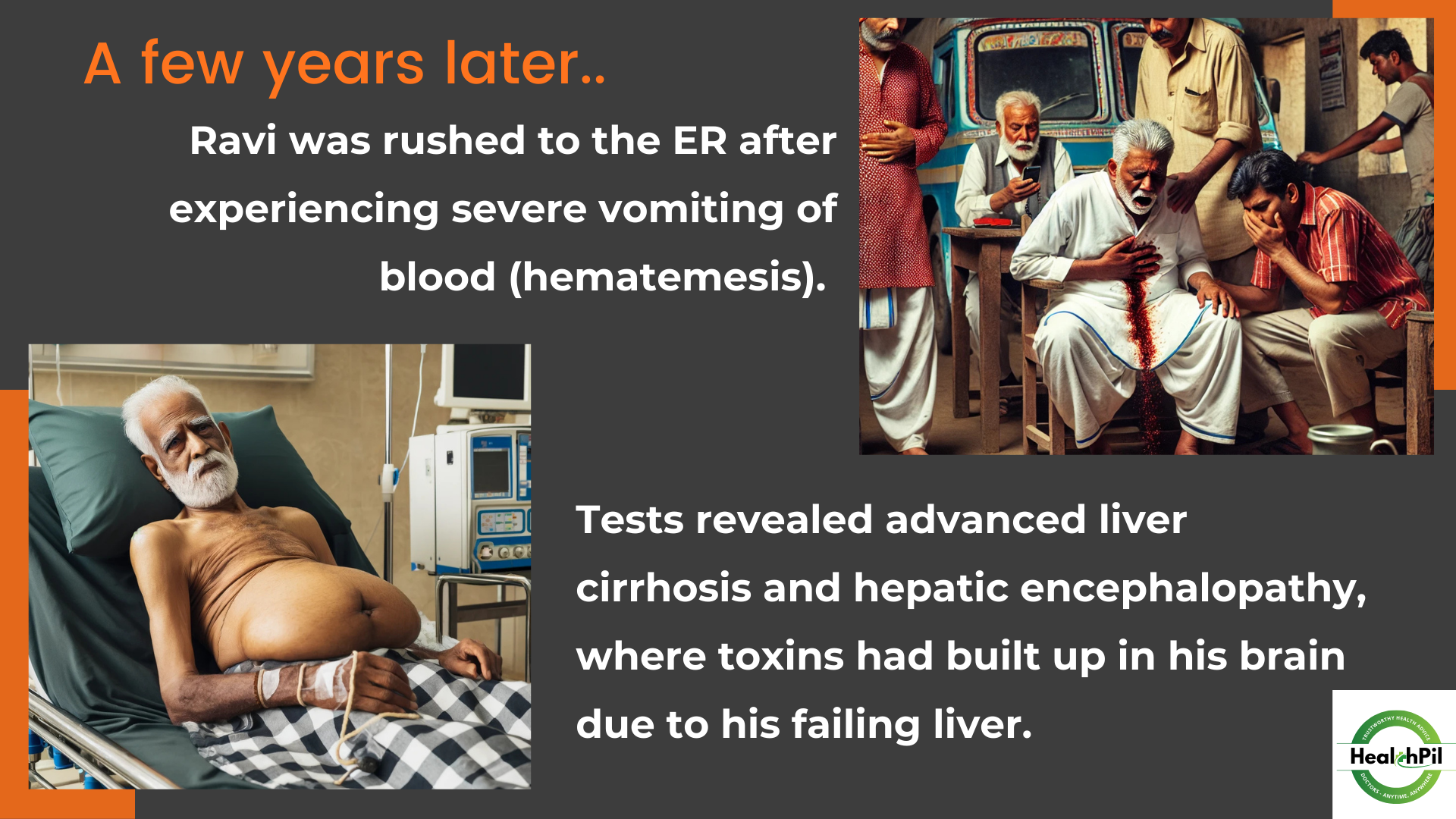
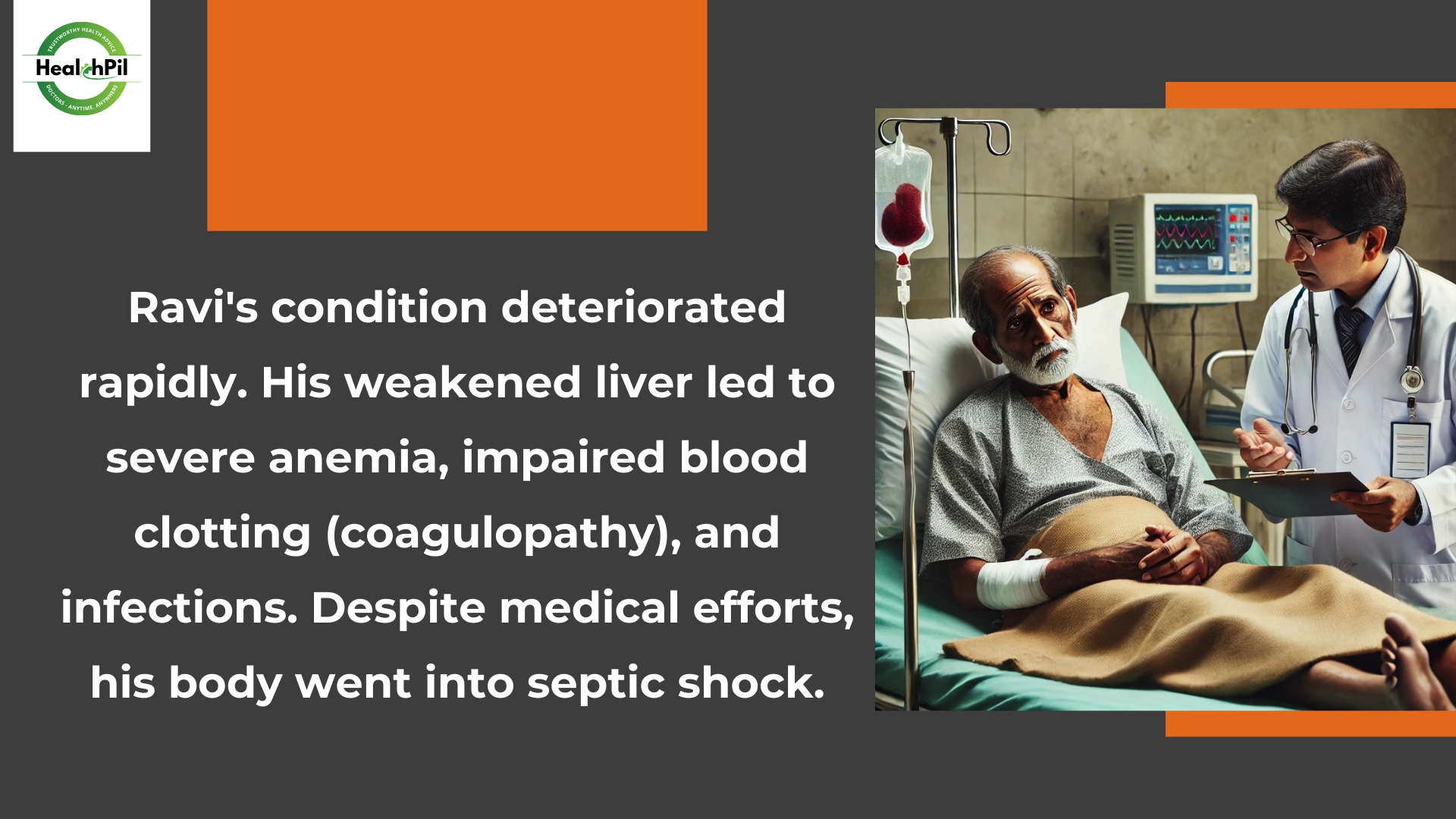
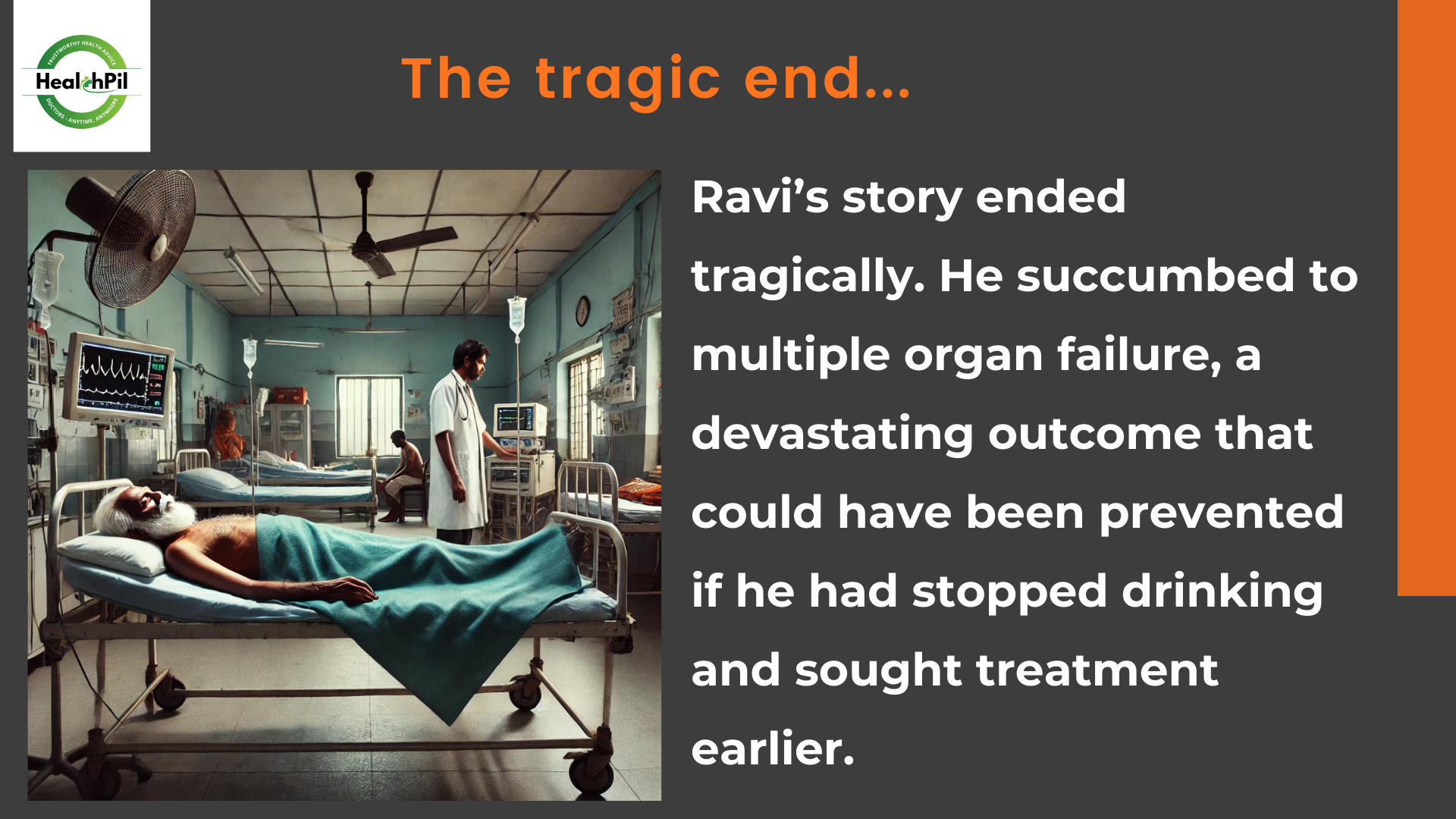
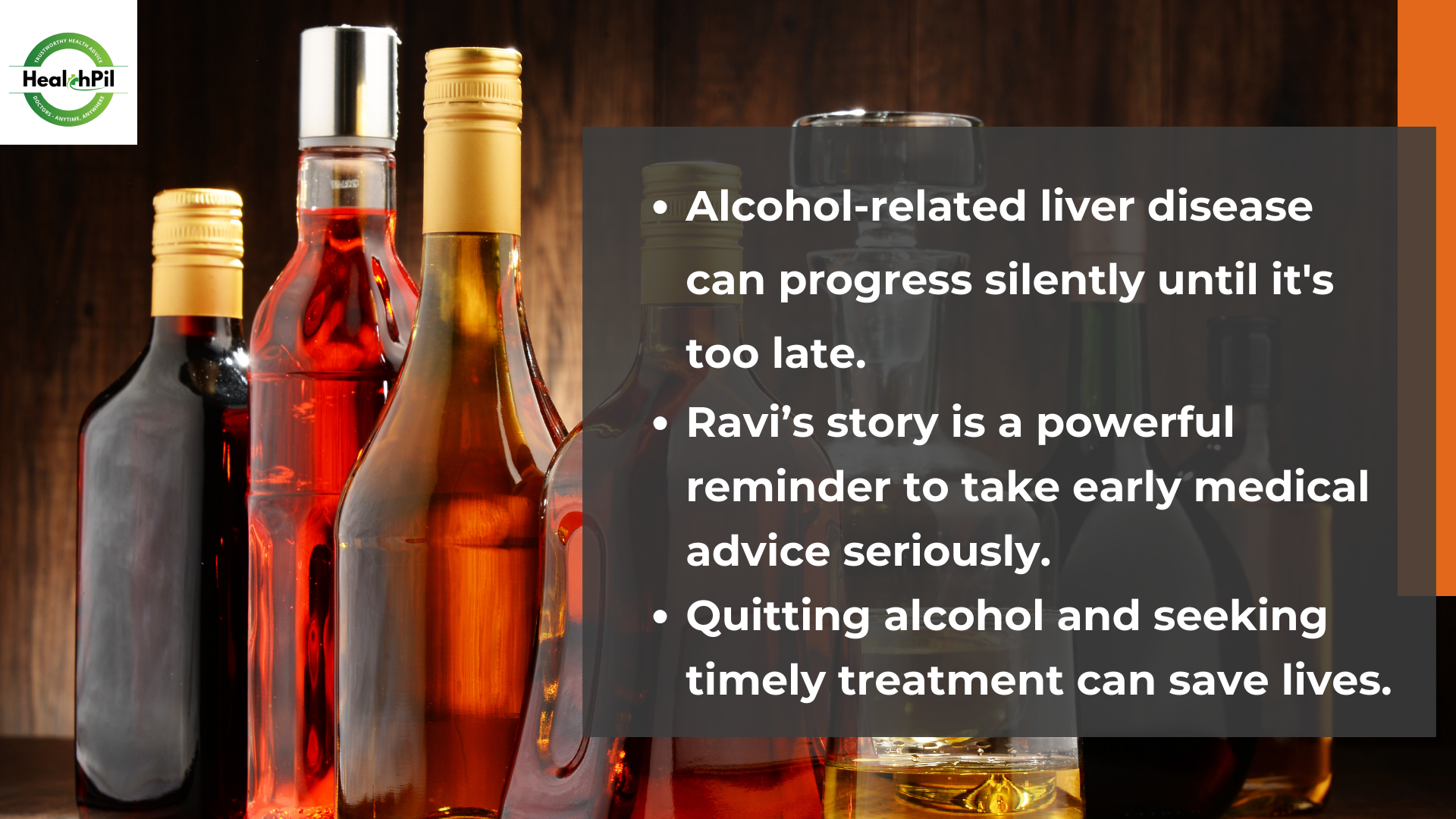

Alcoholic Liver Cirrhosis is an advanced stage of liver disease that is caused by years of heavy drinking. When left unchecked, it can cause serious complications like liver failure, hepatic encephalopathy (confusion, coma due to toxin buildup in the brain), and dangerous internal bleeding. There are many instances where we see that patients continue alcohol consumption despite their physician’s warnings leading to life threatening complications.
A Patient’s Story: Ignoring Alcohol-Related Liver Disease and finally facing Severe Complications
Ravi, a 58-year-old truck driver, has been consuming alcohol for over twenty years. A few years ago, his doctor diagnosed him with alcoholic liver disease and warned him that he needed to quit drinking immediately. Ravi continued drinking despite the warnings, and his condition worsened.
One night, Ravi experienced severe vomiting of blood (hematemesis) and was rushed to the emergency room. Further tests showed that he had developed liver cirrhosis and hepatic encephalopathy, a condition where toxins build up in the brain because the liver is no longer able to filter them. Despite medical intervention, Ravi’s liver damage was too severe. He went into shock due to sepsis and died from complications such as severe anemia, coagulopathy, and multiple organ failure.
What is Alcoholic Liver Cirrhosis?
Alcoholic Liver Cirrhosis is the end stage of alcohol-related liver disease, caused by years of heavy drinking. Over time, alcohol damages liver cells, leading to scarring (fibrosis). As healthy liver cells die, scar tissue builds up, making it increasingly difficult for the liver to perform its vital functions, including detoxifying the body. This leads to a dangerous accumulation of toxins in the bloodstream, affecting overall health.
Common Symptoms of Liver Cirrhosis:
Fatigue and Weakness: Feeling constantly tired or weak.
Jaundice: Yellowish discoloration of skin and sclera due to bilirubin accumulation.
Ascites: Fluid accumulation in the abdomen
Vomiting Blood or Black Stools: This can indicate internal bleeding in the digestive tract, a serious complication of cirrhosis.
Confusion and Memory Loss: Known as hepatic encephalopathy, these symptoms occur when toxins accumulate and affect the brain.
The Dangers of Ignoring Liver Cirrhosis and Continuing Alcohol Use
Ravi’s case illustrates the dangers of ignoring a diagnosis of alcoholic liver disease. By continuing to drink, he worsened his liver’s condition, leading to life-threatening complications like hepatic encephalopathy and gastrointestinal bleeding from esophageal varices (dilated veins in the esophagus). These complications could have been avoided had he stopped drinking and followed his doctor’s advice.
Proper Treatment for Alcoholic Liver Cirrhosis:
Complete Abstinence from Alcohol: Stopping alcohol consumption is crucial to prevent further liver damage. Even small amounts of alcohol can worsen liver cirrhosis.
Medications to Manage Symptoms: Cirrhosis may be managed by medications to reduce fluid buildup, antibiotics, and control brain-related symptoms like confusion.
Monitoring for Complications: Regular liver function tests and screenings for esophageal varices are necessary for cirrhosis patients to prevent and manage complications such as bleeding and hepatic encephalopathy.
Liver Transplant: In cases of severe cirrhosis, where liver has failed completely, an orthotopic liver transplant may be the last resort.
What Happens if Alcoholic Liver Cirrhosis is Ignored?
Hepatic Encephalopathy: When the liver fails, toxins build up in the brain, leading to confusion, disorientation, and even coma. Hepatic encephalopathy is life-threatening if not treated promptly.
Severe Bleeding (Variceal Bleeding): Cirrhosis causes increased pressure in the veins of the stomach and esophagus, leading to varices. If these veins rupture, it can result in severe, life-threatening bleeding.
Liver Failure and Death: If cirrhosis progresses unchecked, it can lead to complete liver failure, where the liver can no longer filter toxins, produce proteins, or regulate blood clotting.
How Can HealthPil Help You?
If you or someone you know is struggling with alcohol-related liver disease, early medical intervention is crucial. Using the HealthPil platform, you can reach out to expert gastrointestinologist who can help you through treatment options, lifestyle changes, and help prevent permanent liver damage.
FAQs (Frequently Asked Questions)
What are the symptoms of liver cirrhosis?
Symptoms include jaundice, fatigue, abdominal swelling, and vomiting blood.
Can liver cirrhosis be reversed?
Liver cirrhosis is irreversible, but early treatment can prevent further damage and manage symptoms.
What causes liver cirrhosis?
Chronic alcohol use, viral hepatitis, and fatty liver disease are common causes.
Can a liver transplant cure cirrhosis?
In severe cases, a liver transplant may be the only option for survival.
Disclaimer:
This article is for educational purposes only and is not an alternative to professional medical advice. If you have liver disease or related concerns, consult a healthcare provider.

